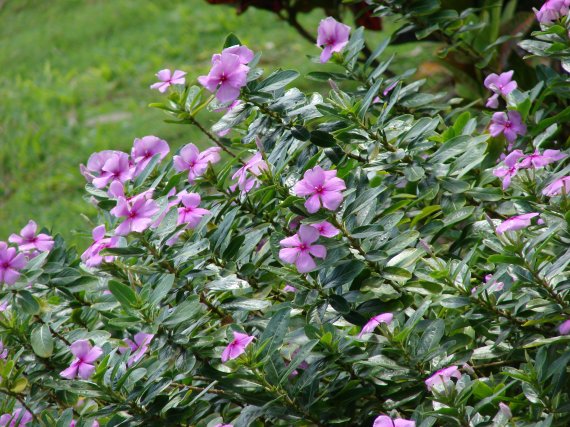It is just a pity the periwinkle contains such small quantities of these substances, says plant physiologist Sander van der Krol. And they are very difficult to make synthetically, due to their complex molecular structure.
Van der Krol’s Chinese PhD student Lemeng Dong therefore wanted to find out whether other plants can make these substances in large quantities. To this end she focused on the production of strictosidine, the precursor of the medicinal substances. She placed all the genes that play a role in the biosynthesis of the cancer drug into a tobacco plant in order to see whether this plant could make the drug too. The results at that stage were disappointing. Some components were identified as alien by the tobacco plant and were deactivated and dumped in the plant cell’s rubbish bin. The big challenge now is to switch off the plant’s resistance mechanisms. If that can be done, the tobacco plant can manufacture the drug in large quantities. Calculations show that its potential production could be 5000 times higher than that of Cantharanthus roseus. Which is interesting news for the pharmaceutical industry. AS
Lemeng Dong received her PhD on 7 March; her supervisor was Richard Immink, professor by special appointment of Plant Physiology of flower bulbs

